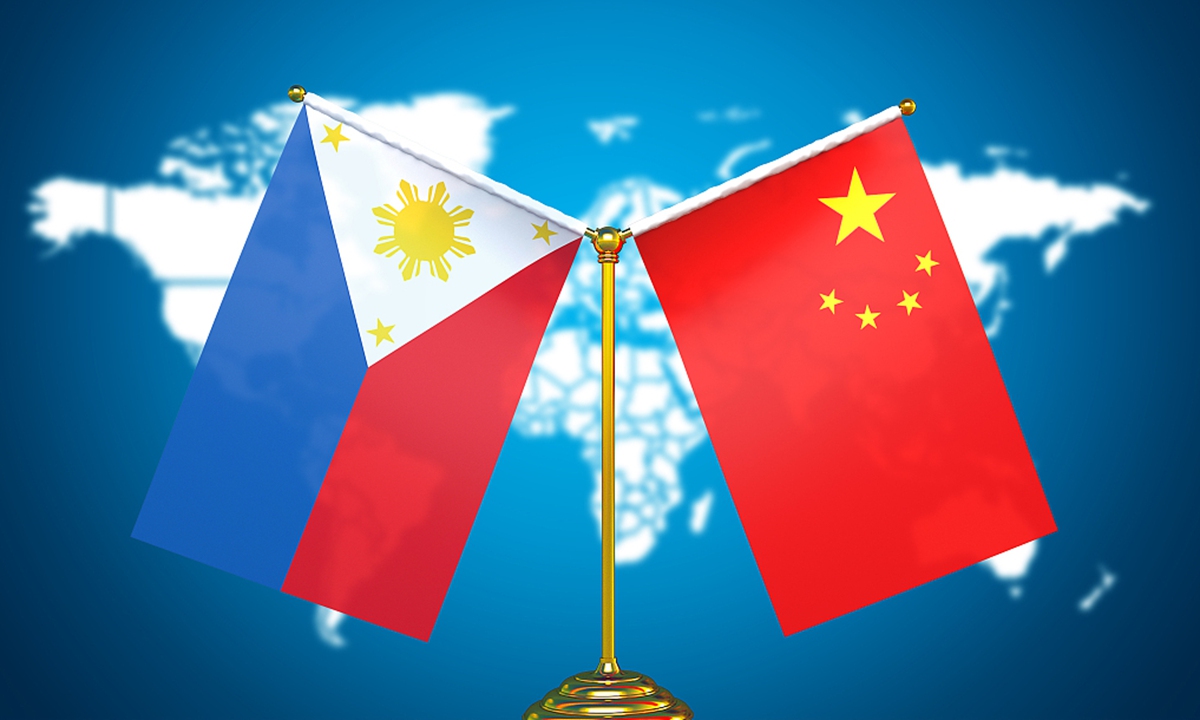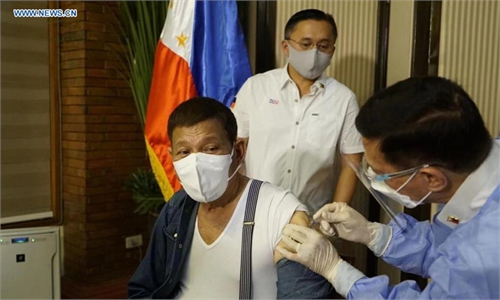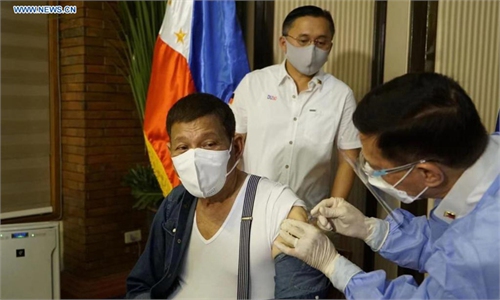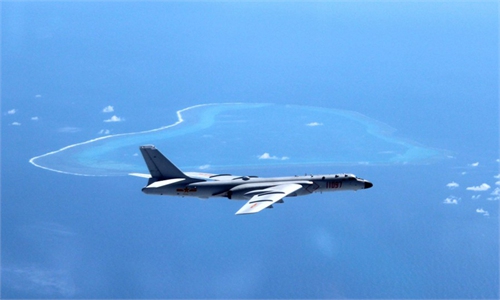
China and the Philippines Photo: VCG
By using the "F" word, Philippine Foreign Affairs Secretary Teodoro Locsin swore at China on Twitter on Monday to demand China remove its ships at the Niu'e Jiao. Philippine Presidential Spokesman Harry Roque said afterward that Locsin's statement is part of his "free speech." Regardless, Locsin apologized to Chinese Ambassador to the Philippines Huang Xilian for his harsh remarks. Locsin also added on Twitter on Tuesday that Chinese State Councilor and Foreign Minister Wang Yi is "the most elegant and intelligent foreign diplomat in history."
Locsin visited China from March 31 to April 2. During his visit, he showed a friendly gesture by saying that the Philippines is committed to further developing bilateral relations and thanking China for its strong support to the Philippines in combating the COVID-19 epidemic - particularly with the aid and provision of vaccines. But why did Locsin disregard etiquette and verbally abuse China on Twitter after a month? There are several reasons.
First, it is because of Locsin's own personality. Roque explained that Locsin's words were "just due to things that gave him a hot head." Locsin has been famous for his strong and sometimes even rude wording on Twitter. The Manila Times newspaper called him "Twitter-mad." He also claimed on Twitter on Tuesday that China's "Wolf Warriors" are his "pupils in aggressive diplomacy." This time he swore at China on Twitter, partly due to his personal recklessness and emotions overwhelming better judgment.
It also shows that there have always been different voices in the Philippines with its China policy. Such wording will have some impact on China-Philippines relations, but such an outcome of uncouth language is in fact limited. We should pay more attention to what is behind the language - the wrestling of different political forces in the Philippines. Different political elements have different opinions about the country's China policy, especially on the South China Sea issue. This is a more important factor that will impose a profound influence on bilateral relations.
Locsin's Twitter rant against China may also have something to do with the country's upcoming presidential election in 2022. At the time of the election, it can be expected that the South China Sea issue will become one of the gimmicks for campaigners to gain momentum. Different political forces in the country will regard the South China Sea as an important topic to hype up. And now, such a trend has begun. Although it is still unclear whether Locsin will participate in the presidential election, he will inevitably hype and instigate the South China Sea issue.
There have been contradictions in the Philippine government's attitude toward China. In terms of security, the Philippines is an ally of the US. Economically, it is becoming increasingly dependent on China. On the one hand, the Philippines is still hyping the South China Sea issue during the pandemic; on the other hand, it needs China's aid for its COVID-19 fight, especially vaccines.
But given the tendency of Duterte's foreign policy, the Philippine president has taken a generally friendly approach toward China. In a televised briefing on Monday, he said that "China remains our benefactor… Just because we have a conflict with China doesn't mean to say that we have to be rude and disrespectful." On the same day that Locsin tweeted impolite comments, Duterte had his first dose of the Chinese vaccine. This shows that there are conflicting views toward China within the Philippines, and the president can hardly control different voices in his government.
The microphone diplomacy of some Philippine officials, such as Locsin's opinions, has already generated some negative impacts on bilateral relations. This can be seen from the war of words between the two sides. But China has a broader view and does not bother too much about it. It continues to offer anti-virus assistance to the Philippines out of public health responsibility.
But as the election season of the Philippines comes closer, and if the country continues to hype up the South China Sea disputes, this may further affect bilateral relations. It could harm cooperation to fight against the pandemic.
The author is a research fellow and deputy director at the Institute of International Relations of the Shanghai Academy of Social Sciences. opinion@globaltimes.com.cn



